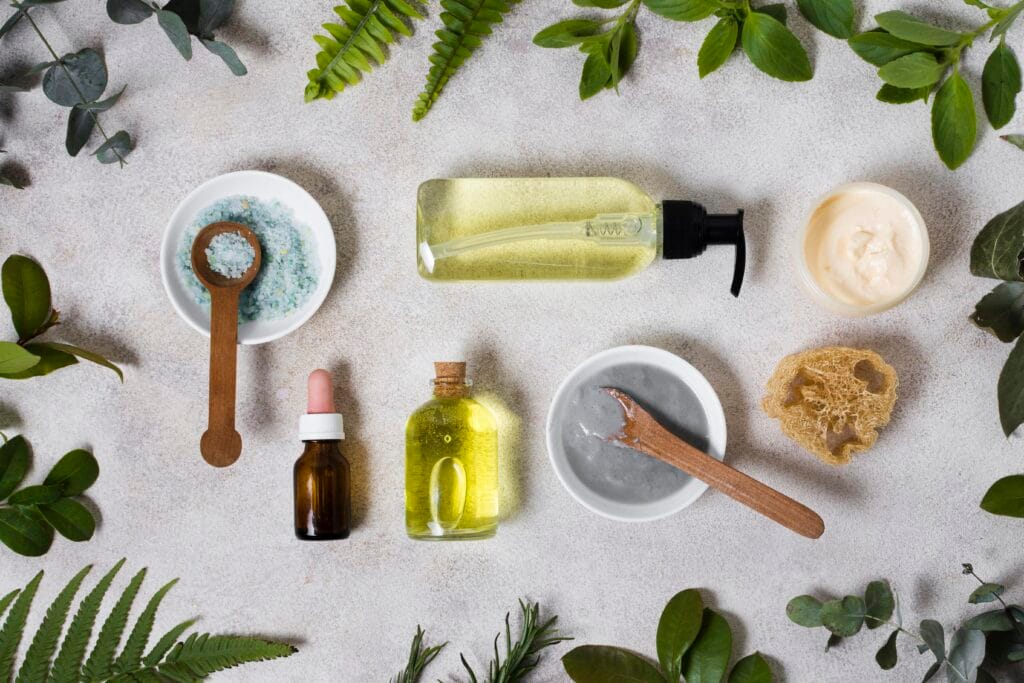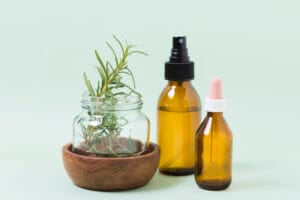How to Choose the Best Natural Skincare Products for Your Skin Type?
- Published -
- Reading Time: 7 minutes
-
Written by - Rajat N
- Reviewed by - Dr. Josh Johnson

Introduction: Do You Have the Appropriate Skincare for Your Individual Skin?
Natural skincare is devoid of artificial ingredients or synthetic products, but did you know that what you put on your skin gets absorbed into your bloodstream? With natural skincare products becoming more fashionable, the idea of using lotions that are less harsh and more potent is difficult to resist. But what is the best natural skincare product for your skin type? At the same time, how can you avoid being misled by marketing?
This guide walks you through selecting the best natural skincare products for your unique skin care routine along with providing actionable tips, expert insights, helpful metrics, and even real world experiences while shredding some myths regarding natural skincare. The advice will be useful whether you have dry, oily, sensitive, or combination skin.
source – https://www.youtube.com/watch?v=Y_UVIgOPRIw
Note: The video content is intended to provide supplementary information and a different perspective on the discussed topic. All information and advice presented in this article are based on expert guidance and review.
1. Determine Your Type of Skin: This is Your Starting Point for Any Skincare Product
Tip: Pay attention on how skin behaves through different times of the day.
Solution:
Dry Skin: This condition makes skin feel tight, coarse and even lead to flakiness.
Oily Skin: Skin tends to be shiny which increases the tendency of acne breakouts.
Combination Skin: Oily skin in the T-zone, dry skin on the cheeks.
Sensitive Skin: Skin is more reactive and prone to irritability which leads to redness.
Expert Insight: “This is critical to effective skin care because knowledge of the skin type guarantees that the products chosen do work on the skin,” says Dr. Lila Monroe, a natural remedies dermatologist.
Case Study: Having suffered from breakouts and involved as a teacher at mid-thirties, Maria finally realized that she possessed combination skin. Therefore, she began using a light cream gel moisturizer for the T-zone area and a hydrating cream for her cheeks.
Data Point: The American Academy of Dermatology states that 50% of the skincare product misuse is due to the wrong classification of skin type.
Myth Buster: Not every natural skincare product is designed for universal use. There are products specialized for certain types like those with sensitive or dry skin, which may not be compatible with oily skin.
2. Decode Ingredient Labels: What’s Really in Your Product?
Tip: Ingredients should be listed straightforwardly and have specific and familiar components that are plant-derived.
Solution Start: Ingredients such as aloe vera are excellent for hydration, tea tree oil is best for acne, shea butter works wonders for dry skin while chamomile soothes irritated skin. It is best to stay clear from synthetic additives, fragrances, parabens and sulfates.
Expert Insight: “The term natural is not synonymous to being safe. If you’re not confident of an ingredient, research it,” warns cosmetic chemist Dr. Priya Mehta.
Case Study: John, a graphic designer suffering from eczema eliminated cosmetic products that contained synthetic fragrances. Within two months, his flare-ups reduced by 70% after switching to natural cleansers infused with chamomile.
Data Point: A study by the Environmental Working Group in 2023 indicated that 78% of traditional skin care products have the potential to be harmful because of the ingredients used in them.
Myth Buster: Products that are packed ”organic” do not always serve the purpose for which they are bought, having irritants. It is crucial to pay attention to the label.
3. Match Ingredients to Your Skin's Needs
Tip: The skincare products you use should match different skin issues that arise.
Solution:
Dry Skin: Try looking for oils like Argan or Coconut, and hyaluronic acid or glycerin.
Oily Skin: Use tea tree oil along with non-comedogenic oils like grapeseed and jojoba.
Sensitive Skin: Gentle ingredients such as Aloe Vera and Calendula are the best choice.
Expert Insight: “Choosing ingredients tailored to your skin’s needs can transform your routine from basic to bespoke,” reveals on of the speakers, Megan Wilson who is a specialist in holistic skincare.
Case Study: Priya, a marketing professional with oily skin changed her moisturizer to a lighter gel based one with tea tree oil and saw a 50% reduction in acne within weeks.
Data Point: Research from Journal of Dermatology shows that 85% of skin problems arise because of incompatible ingredients used.
Myth: Not all natural oils clog pores. According to research, oils like jojoba that can balance oil production by mimicking the skin’s sebum are beneficial.
4. Conduct an Allergy Test Prior to Usage
Tip: Always perform a patch test on the wrist or behind the ear prior to using an item for the first time.
Solution: A patch test involves putting a small amount of the product onto one’s skin and observing it for a period of 24-48 hours waiting to check for changes such as swelling, redness or itching.
Expert Insight: According to Dr Helena Ruiz, a dermatologist, plant based ingredients can often trigger allergies, making patch testing for natural products all the more vital.
Case Study: A college student with sensitive skin, Linda, was able to prevent an adverse reaction by patch testing an irritating rosehip oil serum that she eventually had to stop using.
Data Point: According to the National Eczema Association, more than 30 percent of allergic reactions to skincare products in 2022 can be attributed to the use of ingredients from botanicals.
Myth: Just because an ingredient is plant based does not mean that it is non allergenic. Sensitive people can still react to parts like lavender and citrus.
5. Choose Brands That Are Cruelty-Free and Eco-Friendly
Tip: Search for “PETA Approved” or “Leaping Bunny” inscribed on the product.
Solution: Buy products from brands that utilize ethical techniques and are focused on eco-friendly objectives. Look for companies that provide biodegradable containers and practice transparent sourcing.
Rachel Green claimed, “Eco-beauty expert Eco-conscious skincare isn’t beneficial to the planet alone, it often signals higher quality skincare products.”
David, a pharmacist from our case study, appreciated the plethora of effective products alongside nature friendly impact all from a cruelty-free brand that also used recyclable packaging.
A Nielsen survey conducted in 2022 shows over 73% of clients are inclined towards brands that take up a greener approach.
Fact Check: Just because the label says ‘natural’, doesn’t give permission to start cruelty. Some natural brands do use animal testing.
6. Avoid Deception by “Green” Marketing: Identify Fake “Natural” Claims
Don’t give into ambiguous words such as ‘pure’ or ‘green’ or ‘natural’.
When it comes to beauty Richard, there isn’t much devastation, instead, educate the modern consumer and they will be making better choices as stated by journalist Lisa Tran.
Avoiding synthetic preservatives led Sophie from our case study to skip over “100% natural” moisturizers in replacement with organic certified products.
According to a Statista survey conducted in 2021, 38% of clients did indeed have a hard timed differentiating between fake and real claims.
Fact Check: An earthy packaging isn’t a reliable indicator of a brands authenticity, make sure you do your research and look deeper.
7. The Balance of pH Level in the Skin Care Industry
Tip: The recommended best ph range for body care products is between 4.5 and 6.5.
Solution: If the product’s pH is not stated, opt for pH-balanced products.
Expert Insight: Dermatologist Dr. Andrea Coleman stated, “By balancing your skin’s natural pH barrier, you can avoid dryness, irritation, and acne.”
Case Study: After using a pH balanced cleanser, Jason’s dry patches were gone within only a few weeks.
Data Point: According to studies, 70% of participants didn’t take proper care and suffered the consequences of imbalance pH.
Myth Buster: Just because a product is labeled ‘natural’ does not mean it is free of chemical compounds. pH is still an important factor to consider.
8. Multi-Use and Multi-Application Skin Care Products are a Must for a Modern World
Tip: Products such as moisturizers with spf or serums meant for brightening and hydrating flies are good all-in-one products to consider.
Solution: Cut back on expenditure and time by stocking on products outfitted to service multiple issues.
Expert Insight: “For people who lead busy lives, multi-functional products offer the perfect compromise between effectiveness and effort,” says beauty expert Nina Patel.
Case Study: Rebecca, who is always on the go, switched to a natural BB cream and her morning routine was cut by half thanks to the SPF infused into the cream.
Point of Interest: A whopping 65% of consumers customer reported looking for skincare that features more than one benefit.
Debunking the Myth: The presence of several benefits does not compromise efficacy. A number of natural items utilize strong ingredients to supply several advantages.
9. Take into Account Seasonal Changes to Your Skincare
Tip: Adapt your regime as the climate alters the condition of your skin.
Solution:
For winter, concentrate on heavier moisturizers with oils such as shea butter. For summer, apply gel based, lightweight, and non greasy sunscreen.
Expert Opinion: The skin condition changes throughout the year which is why Dr. Emily White, a dermatologist, stated, ‘Changing your skincare routine does mitigate dryness during winter and oiliness during summer, both are common problems people face.
Case Study: Implementing a hydrating overnight mask during her routine has decreased Rachel’s winter flare-ups.
Point of Interest: A large number of people claim to suffer from seasonal skin changes, and most of them don’t even alter their skincare strategy to match it.
Debunking the Myth: Changes don’t have to be so drastic with every new season. Making little changes such as switching moisturizers works.
10. Come Up with Your Own Strategy
Tip: Aim to have an uncluttered skincare strategy with only a couple of top notch products.
Solution: The ideal routine is one that incorporates gentle skin cleansers, moisturizers, and sunscreen. Targeted serums or treatments can be added when necessary.
Practical Guidance: “Often, a simple yet high-quality skincare routine is more effective than many products”, skincare formulator Dr. Sarah Young explains.
Example: Michael implemented a three-step routine instead of the eight-step one he used to follow, and within a month, he experienced positive changes in his skin’s clarity and breakouts.
Customer Insight: While 63% of respondents in a Mintel report admitted that too many skincare options were available in the market, the majority tended to prefer a simplified approach.
Dispelling Common Beliefs: The more products you use does not equate to getting better results. When too many products are used on the skin, it can disturb the skin barrier.
Final Thought: Take Control and Empower Yourself to Make the Right Choice
Choosing the best natural skin care products that suit your skin is an art and a science. Understanding your skin, reading ingredient labels, and focusing on quality will allow you to create a routine that will nourish and protect your skin to ensure effectiveness. Always remember, healthy skin begins with the right decisions. Therefore, let the power of knowledge guide you, and enjoy the natural glow knowing the skin is healthy.

